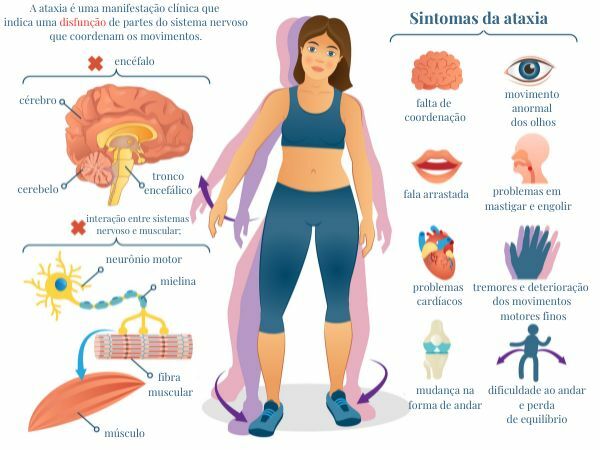O heart transplant It is a surgical procedure indicated as a last resort, when other alternatives to reverse the patient's heart problems have already been exhausted. To receive a heart transplant, the patient must register with the National Transplant System (SNC) and wait for the availability of an organ that is compatible with his body.
Read too: Myths and truths about organ donation
Topics of this article
- 1 - Summary of heart transplantation
- 2 - What is a heart transplant?
- 3 - When is it indicated to have a heart transplant?
- 4 - How is the heart transplant performed?
- 5 - Heart transplant queue
- 6 - When does a person leave the queue for a heart transplant?
- 7 - Value of heart transplantation
- 8 - Risks of heart transplantation
- 9 - Postoperative heart transplantation
- 10 - Life expectancy of a transplant recipient
- 11 - Who can be a heart donor?
heart transplant summary
A heart transplant is a surgical procedure that involves removing a patient's heart and replacing it with a healthy heart.
It is indicated when the other available treatments were not effective in curing the patient.
The heart transplant queue is a list of patients registered with the National Transplant System who are waiting for a heart from a compatible donor.
The cost of a heart transplant paid by SUS is around R$37,052.69.
One of the biggest risks of heart transplantation is rejection of the transplanted organ by the patient's body.
To be a heart donor, a person must have their death proven by brain death.
What is heart transplant?
Heart transplantation is a complex surgical procedure performed on patients who have a disease or dysfunction in that organ that makes it necessary to remove it and replace it with another healthy heart.
the heart transplant depends on the donation of someone else's heart which must be compatible with the body of the patient who needs the transplant. Thus, heart transplantation only occurs when the heart of a deceased person has the appropriate characteristics to be transplanted into a patient with heart problems.
Do not stop now... There's more after the publicity ;)
When is it recommended to have a heart transplant?
Heart transplantation is indicated when the patient has serious or irreversible heart problems that prevent the proper functioning of the heart and that put your health and even your life at risk.
heart transplant is the last alternative to be resorted to after treatments were carried out that were not effective in curing the patient, leaving the only solution to replace his heart.
Read too: Which organs can be donated while alive?
How is a heart transplant done?
The surgical procedure of heart transplant begins with administration of general anesthesia to the patient, who remains unconscious throughout the surgery. Afterwards, an incision is made in the chest as a way to access the heart, which is disconnected from the blood vessels and removed from the body. During the entire procedure, the patient remains connected to a machine that pumps blood.
After this, the new donor heart is connected to the patient's body and connections between blood vessels are made, restoring circulation throughout the body. At the end of the procedure, the medical team closes the incision made in the patient's chest and sends him for postoperative monitoring.
heart transplant queue
Patients who need a heart transplant must enroll in the National Transplant System (SNC), a system coordinated by the Ministry of Health and which is responsible for regulating, controlling and monitoring transplants performed in the country.
Brazil has the largest public organ transplant program. It is assured to the entire population through the SUS, which finances approximately 88% of transplants performed in the country. However, despite the large number of transplants performed, the number of people needing to receive a transplanted organ is greater than the availability of the organs.
Thus, the heart transplant queue is the list of patients registered in the National Transplant System who are waiting for a heart from a compatible donor. It is necessary to emphasize the importance of organ donation and the creation of efficient donation systems capable of reducing patients' waiting time in queues and increasing the chances of transplant success.
When does a person get off the heart transplant queue?
A person leaves the heart transplant queue when a compatible donor organ becomes available. O selection process is complex and involves several variables, including the severity of the patient's medical condition, compatibility with the donor organ, the position occupied by the patient on the waiting list, proximity between the donor and the recipient, in addition to other criteria, which may vary depending on the organ transplantation system in the region where the patient is located find.
value of heart transplant
According to the 2015 reference values, released by the Health Department of Piauí, the cost of a heart transplant paid by the SUS is BRL 37,052.69, encompassing hospital and professional services. However, this amount does not include organ harvesting procedures, preoperative exams and medications.
Heart transplant risks
Like any surgical procedure, heart transplantation also presents risks and, as it is a complex procedure, requires a highly qualified medical team. expertise, adequate facilities to carry out the procedure and a rigorous evaluation of the patient who will receive the transplant as well as the heart that will be transplanted.
Since a heart transplant is about the implantation of a organ from another person, one of the main risk factors for this procedure is the rejection of the organ by the body of the patient who will receive it. The immune system of the patient who will receive the organ can recognize the transplanted heart as a foreign body and trigger a rejection reaction in which the immune system “attacks” the organ transplanted.
To minimize the risk of rejection, treatments are performed based on drugs that reduce the immune response, but increase the susceptibility to infections, which may trigger significant side effects, such as diabetes, high blood pressure and heart failure renal.
Postoperative heart transplant
After heart transplantation, the patient will undergo a period of cardiac rehabilitation. In addition to regular medical appointments and the indispensable use of immunosuppressant medications, throughout After approximately six months, transplant recipients need to participate in physical activities supervised.
Life expectancy of a transplant
After heart transplantation, the transplanted patient shows an improvement in survival of 80.7% in the first year and 59.7% in the fifth year after the operation. Median adult patient survival after transplantation revolves around 11 years.
Who can be a heart donor?
A deceased person may be a heart donor who had confirmed brain death. Brain death is the cessation of activities of all parts of the brain, including the brainstem, the region that controls breathing, heartbeat and body temperature.
In Brazil, for the donation of the heart to occur, it is necessary that the family of the deceased person authorizes the donation of the organ. Thus, those who wish to become organ donors must first talk to their family members. as a way of clarifying his intention so that, after his death, the family authorizes the withdrawal and donation of organs.
The person who wishes to become an organ donor does not need to register their desire in writing or in notary offices, nor even draw up documents that confirm your intention to donate, requiring only communication to your relatives.
It cannot be a heart donor who has some specific diseases, such as some types of cancer and HIV.
Sources
FIORELLI, AI; OLIVEIRA, Jr. J de L; STOLF, NAG. heart transplant. Rev Med (Sao Paulo). 2009 Jul.-Sep.;88(3) ed. special: 123-37.
MONTALTI, Edmilson. Patient receives heart transplant after seven months hospitalized. Clinical Hospital - UNICAMP. 18 Jul. 2023. Available in: https://hc.unicamp.br/newsite_noticia_331_insuficiencia-cardiaca-e-doacao-de-orgaos/.
LESS, W. et al. Prolonging survival in heart transplant patients. Virtual health library. 26 jun. 2021. Available in: https://pesquisa.bvsalud.org/portal/resource/pt/biblio-1291378.
MINISTRY OF HEALTH. I want to be an organ donor. What to do? Available in: https://www.gov.br/saude/pt-br/composicao/saes/snt/doacao-de-orgaos/quero-ser-doador-de-orgaos-o-que-fazer.
GOVERNMENT OF PIAUI. What is organ transplantation? Health Portal. Available in: http://www.saude.pi.gov.br/centraldetransplantes/informacoes/o-que-e-transplante-de-orgaos#:~:text=Cora%C3%A7%C3%A3o%3A%20R%24%2037.052%2C69.
MINISTRY OF HEALTH. National Transplant System. Available in: https://www.gov.br/saude/pt-br/composicao/saes/snt.
HOSPITAL ISRAELITA ALBERT EINSTEIN. How is a heart transplant done? Available in: https://vidasaudavel.einstein.br/transplante-de-coracao/.
STATE OF RIO GRANDE DO SUL. What should you know about organ donation? (revision 2019). Available in: https://saude.rs.gov.br/upload/arquivos/carga20190946/11144611-cartilha-do-doador.pdf.
GOVERNMENT OF GOIAS. Patient Manual - Heart Transplantation. Available in: https://www.saude.go.gov.br/images/imagens_migradas/uploads/2016/12/manual-do-receptor-de-coracao.pdf.
Check out everything you need to know about the human heart, a hollow organ made up of four chambers that ensures blood is sent throughout the body.
Find out how to proceed to become a bone marrow donor and understand how the donation process works.
Learn a little more about blood donation by clicking here! Find out who can and who cannot donate and the procedures before and after the donation.
Do you know who can donate organs and which organs can be donated? Click here and find out the answer to this and other questions!
Click here and learn more about what organ transplants are and how they are done.
Click here to find out what the Unified Health System is, how it is organized, what is its history, and what is the importance of this system in our society.
Have you ever wondered which organs can be donated while alive? Click here to learn about these organs and the reasons for their donation. Also, get to know a little about Law No. 9,434, which provides for the removal of organs, tissues and parts of the human body for transplantation and treatment.



